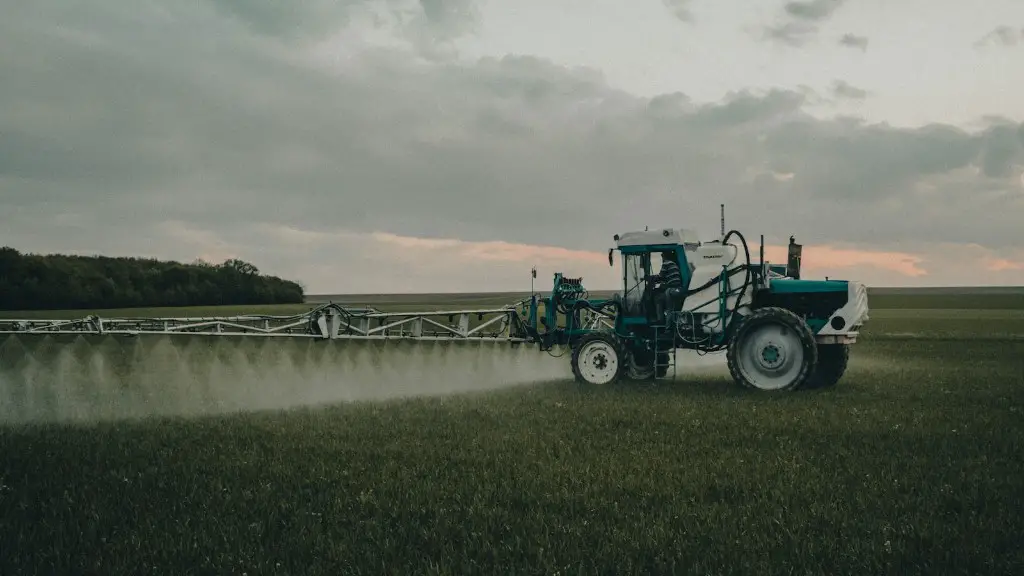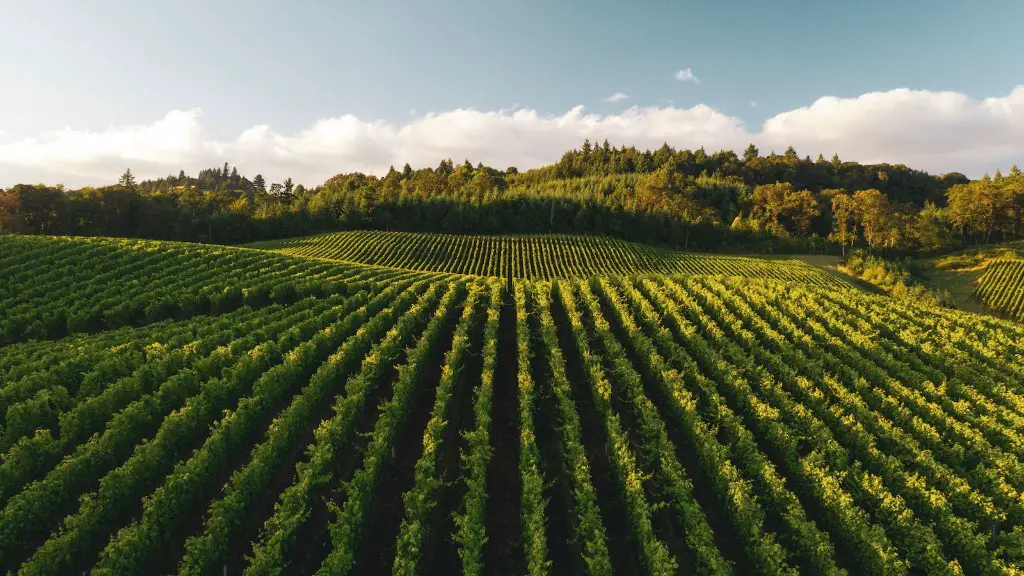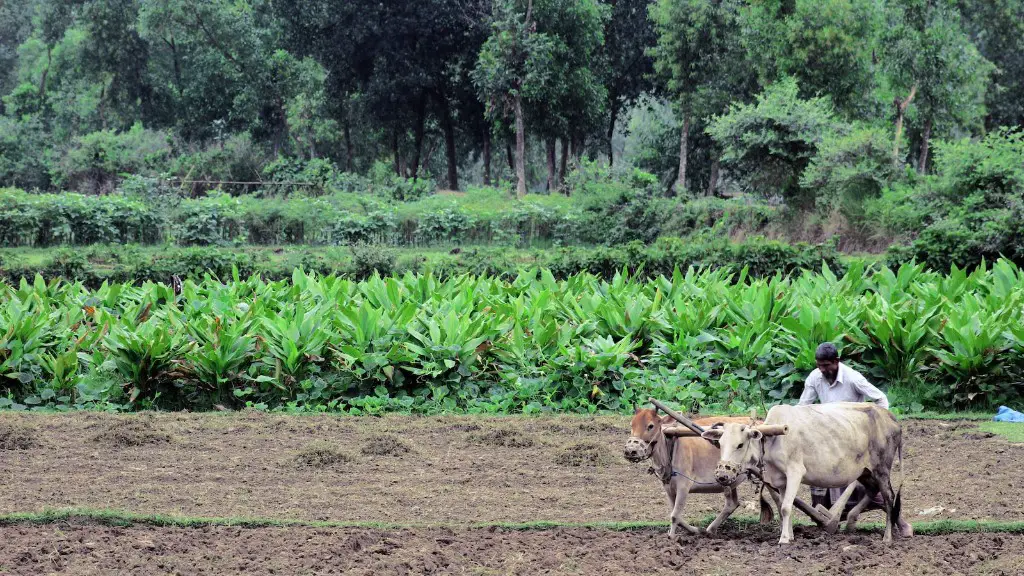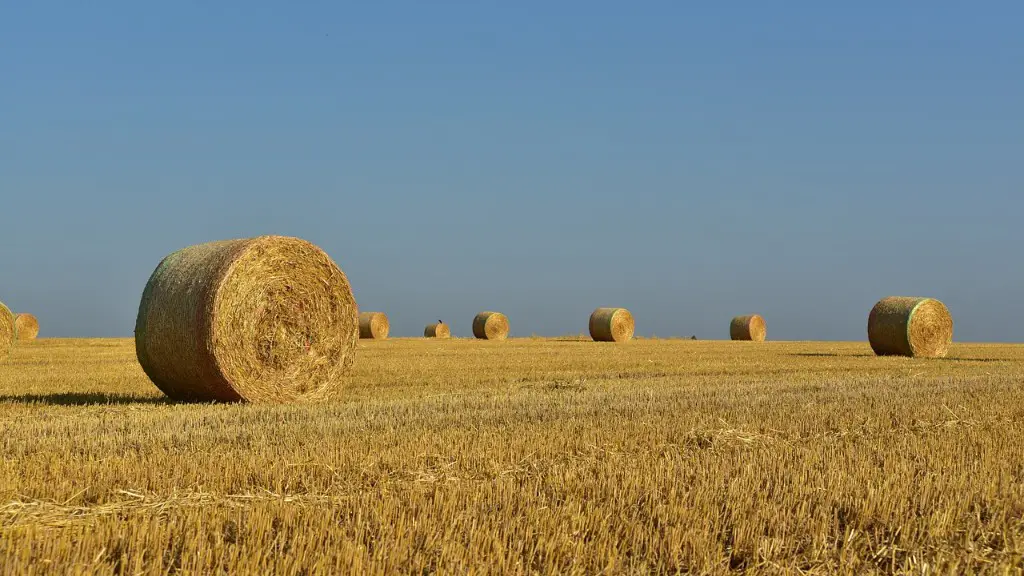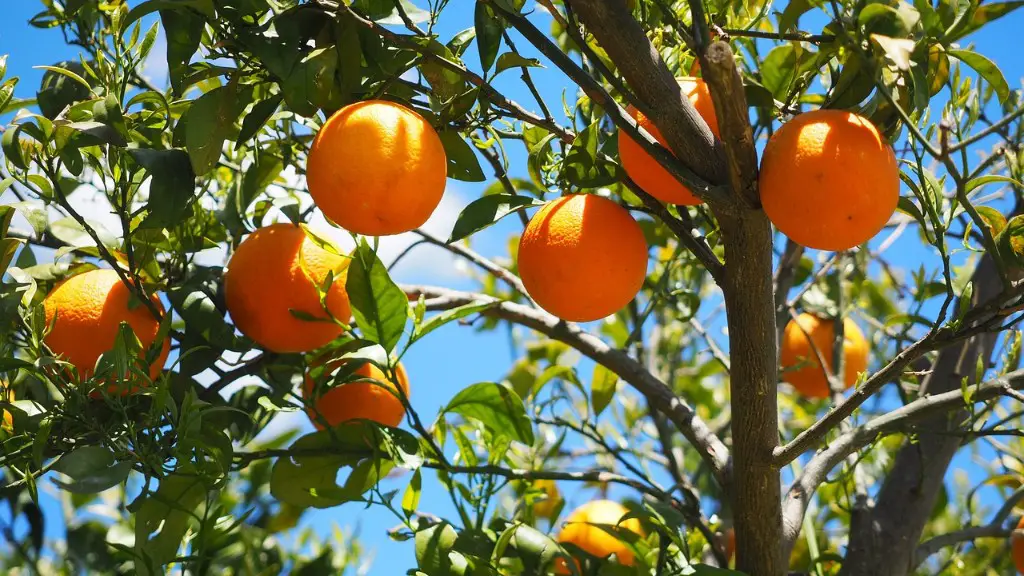Modern agricultural systems are essential for meeting the demands of the growing human population. From providing nutritious food sources to developing sustainable supply chains, agricultural systems have become an integral part of our global economy. By understanding the science, technology and management principles behind these systems, we can ensure that the current and future generations can access the food sources and benefits of modern agriculture.
Global populations are rising at unprecedented levels, and food production and security is an essential factor in meeting the needs of this growing number. Along with providing food, modern agriculture has created jobs in many areas, and has evolved methods of growing food and livestock that are more efficient than traditional farming. Furthermore, modern agriculture systems have aided in the conservation of our natural resources, such as soil, water, and air, while improving the environmental quality of our planet.
The emergence of modern agriculture systems has enabled us to make better use of natural resources, such as soil, water, and air. By eliminating potential wastage of these resources, agricultural systems can significantly reduce the environmental impacts of agricultural practices. This is particularly important in areas that are prone to droughts and floods due to climatic conditions in addition to the effects of human-made land-use changes.
The application of modern technology in agriculture has enabled us to develop more efficient farming methods and increase yields, leading to greater food security for the world’s population. Automated processes such as irrigation, soil tilling, and pest control have been implemented to reduce manual labor and make agricultural operations more systematic. Additionally, technology has had a wide-reaching impact on crop production and storage by increasing the rate of crop harvest, reducing storage time and making the transportation of commodities more efficient.
Modern agricultural systems have also provided citizens with more access to food sources. This is especially critical in developing countries where people are unable to access readily available food due to poverty and insufficient infrastructure. For these communities, agriculturally-based development initiatives, such as improved seed varieties, crop rotations, and increased management supports, make modern agriculture systems essential for their survival.
Finally, modern agriculture has been essential in providing farmers with access to real-time information that can help them in various aspects of their operations. This includes data regarding weather, fertilizers and pest control, as well as information on available markets, prices, and production techniques. This information can prove invaluable in helping farmers make informed decisions that can improve their productivity while minimizing the negative environmental impacts of their operations.
The Impact of Modern Agriculture
Modern agricultural systems have had a profound influence on our global society, aiding in meeting the demands of an ever-expanding population while improving the quality of life. Advanced technology and improved management practices used in modern agricultural systems have contributed to an unprecedented increase in crop yields, reducing reliance on traditional farming methods. Additionally, modern farming systems have been able to effectively control and manage pests, improve seed varieties, and reduce labor time.
Improved farm management has been key in helping farmers successfully produce healthy crops. Modern farm management includes better soil quality and weed management, the use of fertilizers to improve crop yields, improved irrigation systems, and greater use of labor. All of these efforts have been successful in producing healthier, more nutritious crops and providing farmers with an opportunity to increase yields, resulting in increased economic activity for the agricultural sector.
Furthermore, the use of modern machinery in agricultural operations has helped to increase production rates while minimizing the environmental impact of farming practices. For example, modern tractors and equipment can help reduce the amount of water and fuel used in agricultural operations and greatly reduce the manual labor that is traditionally used in traditional farming practices. Innovative technologies, such as unmanned aerial vehicles, are also being employed to facilitate crop inspections, fertilizer application, and weather monitoring.
In addition to providing food security, modern agriculture systems are also providing environmental benefits. By practicing smart farming techniques and introducing new crop varieties, farmers are reducing their reliance on chemical fertilizers and pesticides, reducing the amount of water and other resources used for farming, and allowing for better nutrient cycling by introducing cover crops that improve soil health.
The implementation of sustainable agriculture practices has been essential in helping to reduce the negative impacts of modern agriculture systems on the environment. This has included measures such as using mulching, using low-till and no-till practices, and implementing erosion control measures. By reducing the soil erosion that has traditionally occurred in agricultural production, modern farming systems can provide more soil stability, improve water retention and filtration, reduce water pollution, and help to enhance biodiversity.
Advantages of Modern Agriculture
In addition to providing an improved quality of life, modern agricultural systems offer a variety of advantages compared to traditional farming methods. This includes increased yields, improved crop varieties, enhanced labour efficiency, and improved use of natural resources. These advantages are especially beneficial for farmers in developing countries, where food security is an ongoing challenge of poverty-stricken communities.
The use of advanced technology in farming has enabled farmers to increase their crop yields. Technology can be used to monitor agricultural operations and ensure that a greater amount of produce is collected in a shorter amount of time. This can be especially beneficial in remote areas where access to modern farm equipment and technology are limited. Specialty crops, such as those grown for highly-valued commodities or medicinal plants, can also benefit from the introduction of modern agricultural systems.
Modern agriculture systems enable farmers to preserve and increase the quality of their soils. This includes using improved methods of soil preparation, such as tilling and inter-cropping. Techniques such as this can reduce the erosion of soils, decrease the amount of weed growth, and provide more nutrients for the crops. Additionally, modern farming operations can include the use of cover crops to reduce the growth of weeds, recirculate nutrients, and improve the structure and water-holding capacity of the soil.
Another key benefit of modern agriculture systems is the improved efficiency of many agricultural operations. By reducing the amount of manual labour required and introducing more automated processes, agricultural operations are more efficient and productive. The use of machinery and specialized equipment minimizes human error and ensures that the task is completed quickly and correctly.
Finally, modern agricultural systems can improve the conservation of natural resources. This is important in areas that are prone to droughts, floods and other weather-related events. By having an efficient water management system, farmers can reduce water use and eliminate runoff, allowing for greater renewable resources. The use of crop rotation, improved storage, and improved ways to reduce waste can all reduce the amount of resources that are lost in the production process.
Benefits of Modern Agriculture Systems
Modern agricultural systems offer a wealth of benefits compared to traditional farming, leading to improved food security, increased economic opportunities, and fewer environmental impacts. Improved food production and access to healthy food sources are essential for maintaining the health and well-being of the global population.
For many individuals living in poverty-stricken areas, the effects of malnutrition can be devastating. Access to food sources that are both nutritious and affordable have been essential in helping to reduce malnutrition and improve the quality of life for these communities.
In addition to providing a stable food source, modern agricultural systems have enabled farmers to increase their economic opportunities by providing employment in various sectors. Agricultural development projects have helped to reduce poverty in many parts of the world, and provide training and capacity building for farmers in areas of need.
But along with providing productive benefits, modern agricultural systems have also had a considerable impact on the environment. By introducing methods that are more efficient and sustainable, agricultural operations can reduce the amount of water, chemical fertilizers, and other resources used in farming, while improving soil and biodiversity.
The use of cover crops, low-till farming methods, and improved pest management are all practices that are being used to improve environmental quality while providing effective food production. Finally, technologies such as precision agriculture and the use of unmanned aerial vehicles are being used to monitor and manage land, crops and resources in a more efficient manner, leading to greater sustainability.
Challenges of Modern Agriculture
Though modern agricultural systems have helped to reduce global hunger and improve the quality of life for many individuals, there are still a number of challenges that may present obstacles for the implementation of these systems. As technology and global demand for food continue to increase, farmers must be prepared for the risks associated with the introduction of new technologies, including the potential for inadequate water supply and the risks associated with pest control and limited land availability.
In addition, the costs associated with purchasing new technologies and equipment can place a financial strain on many small-scale farmers. In areas that lack sufficient infrastructure and information-sharing, access to resources can be limited, requiring close collaborations among farmers in order to access the necessary information and equipment needed to make informed decisions.
Furthermore, unpredictable weather patterns, climate change, and rapid population growth are all factors that present risks and challenges to successful agricultural operations. Regions that are more vulnerable to the impacts of climate change are particularly at risk, as the production of crops can be significantly impacted by changing temperatures, moisture levels, and even the introduction of new pests to the area.
Finally, the governmental systems and policies established to support agriculture are also essential components to ensuring that modern agriculture systems are successful. Governmental systems must be well-developed and adequately funded in order to provide the information, support, and infrastructure needed for successful farming operations.
In conclusion, modern agricultural systems have revolutionized the way that food is produced and distributed, making it possible for the world’s population to access safe, healthy, and nutritionally-rich food sources. While these systems are essential for meeting the needs of a growing population, they also present considerable risks and challenges that must be addressed in order to ensure their success.
